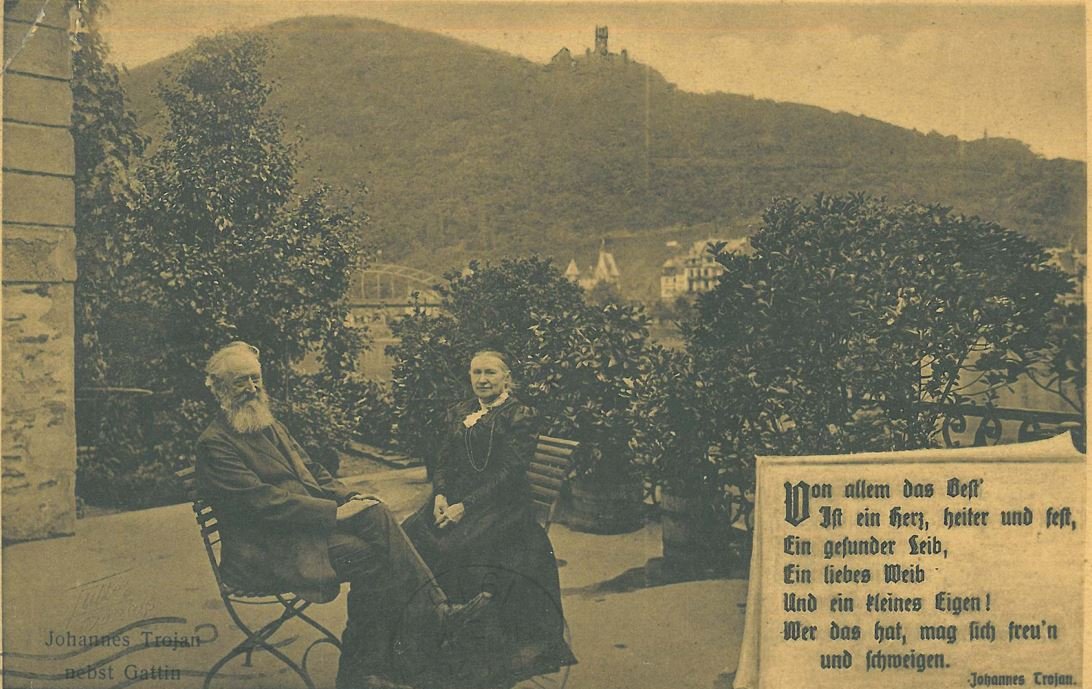Johannes Trojan visits the Kawarthas
Auf der anderen Seite by Johannes Trojan. Published in Grote, Berlin. 1902. Stewart family fonds.
How does a book published in Berlin, Germany by writer, journalist, and botanist, Johannes Trojan be relevant to Kawartha Lakes? Written in German, Auf der anderen Seite – translated to On the Other Side – details his trip in Ontario to collect and study specimens to take back to Germany. Trojan and his friends, J. A. Steele and wife travelled around Toronto before heading up north to the Muskokas and over to Haliburton County and eventually down into the Kawarthas and Lindsay to visit his friends, Thomas and Lillian Stewart. As we do not have a German translator on hand or could find an official English translation of the book, we used Google Translate on the text even though it may not be perfect.
Johannes Trojan and his wife on his 18th Moselle trip on the occasion of the 100th year. Foundation festival of the Traben-Trarbach Casino. July 1-3, 1910. This postcard was sent to Lillian from Johannes in December of 1912 in Warnemünde, Germany wishing her a Merry Christmas.
Johannes Trojan (1837 – 1915) was born in Danzig, Germany in a politically and socially affluent family. After completing his matriculation exams in 1856, Trojan completed some schooling in medicine and German at the University of Gottingen and University of Berlin and Boon. Becoming involved in the newspaper scene on campus, he became editor of the political-satirical weekly newspaper Kladderadatsch in 1866 and editor-in-chief from 1886 to 1909. An admirer and friend of Otto von Bismarck, his newspaper often derided socialism and portrayed the Prussian and German Chancellor in a more positive light than editors past. Before his death, Trojan would write 31 children’s books as well as other works which can be found here: https://de.wikipedia.org/wiki/Johannes_Trojan.
Minden. 1897. Beall Scrapbook at Kawartha Lakes Museum & Archives.
In June of 1900, Trojan was a guest of Thomas and Lillian Stewart when he arrived at Sturgeon Point during the week of June 10th after travelling down from Gravenhurst through to Dorset and Minden and down to Fenelon Falls. Throughout his journey, Trojan and his companions would travel on foot along paths in the forests and swamps taking note of the plants and trees they saw along the way. Though worrying about the space that Canadian blackberries would take up in his plant press, Trojan writes “there are not many types of blackberries in Canada, but there are some very good ones that are also suitable for growing in the garden. I brought most of them with me.” Not only were plants noted along the way, but also animals and birds such as chipmunks, which Trojan noted that the Berlin Zoological Garden had two of these species along with porcupines and groundhogs with which he has never seen before. While in the small villages of Dorset and Minden, Trojan and would spend time on their main streets to shop and talk while boarding there for the nights.
Stewart family cottage. 1897. Thomas Stewart is sitting on railing with Lillian Stewart holding Eric.
After getting his shoes blown out in Fenelon Falls at the hotel he was staying at while waiting for his friends to get their haircut at the barber shop, they departed to Sturgeon Point in the rainfall on June 14 to meet Thomas and Lillian, who were arriving by the steamboat. Trojan and his group arrived by noon but found the Stewart cottage was still locked as the Manita or Esturion had not yet arrived from Lindsay carrying his hosts. While waiting, Trojan noted that there was a farmer who “was a flower lover [and] in front of her house there were pretty potted plants and large bouquets of wildflowers in glasses that she had picked.” Eventually the Stewarts would arrive bringing food from Lindsay to prepare for lunch and dinner. The friends chatted for the afternoon where Trojan shared with the Stewarts that he had “suffered about two hundred blackfly bites and lost twelve English pounds.” Before departing for their destination of Lindsay to stay at the Stewart home at 70 Bond Street, Trojan put on some gloves and collected the poison sumac which populated heavily on the lakeshore of Sturgeon Lake. He noted this was the only time he would have to wear gloves during his time in Ontario as he was not sure if he would have a reaction to the native plant to North America.
Johannes Trojans writes upon arriving in Lindsay:
“Lindsay has two churches, one Presbyterian, which we adhered to, and one Methodist, and it has a main street with handsome buildings. There you will find all sorts of shops and stores, a hotel and a brewery, a bar where you can drink a tolerable glass of beer in the company of men from the community. Our host [Thomas Stewart], who is a lawyer by trade, had his office in this main street, but his house was in the outermost part of the town and could well be described as a country house. It was in a garden with flower beds, beautiful trees, and a shady plas in front of the door, where we often met. Of course, this also includes vegetable land, as well as a meadow on which there was a lot of yarrow, not with the usual white, but with crimson flowers, like this plant also has here and there with us. There was no lack of tame cattle either, there was a cow that had to be treated with care because of her somewhat violent disposition, and a nice little calf. All kinds of feather vich were kept, and finally there were a few dogs, the larger of which, a beautiful animal, willingly allowed the children of the house to play with it. In this cozy home I spent a few days of peace and tranquility, which were extremely soothing after the wanderings of the previous time.”
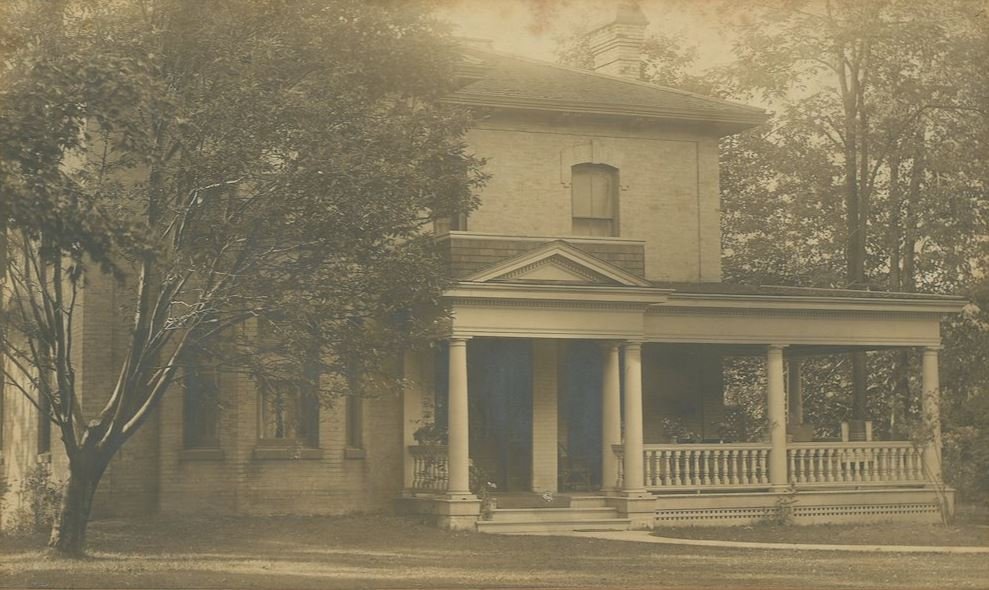
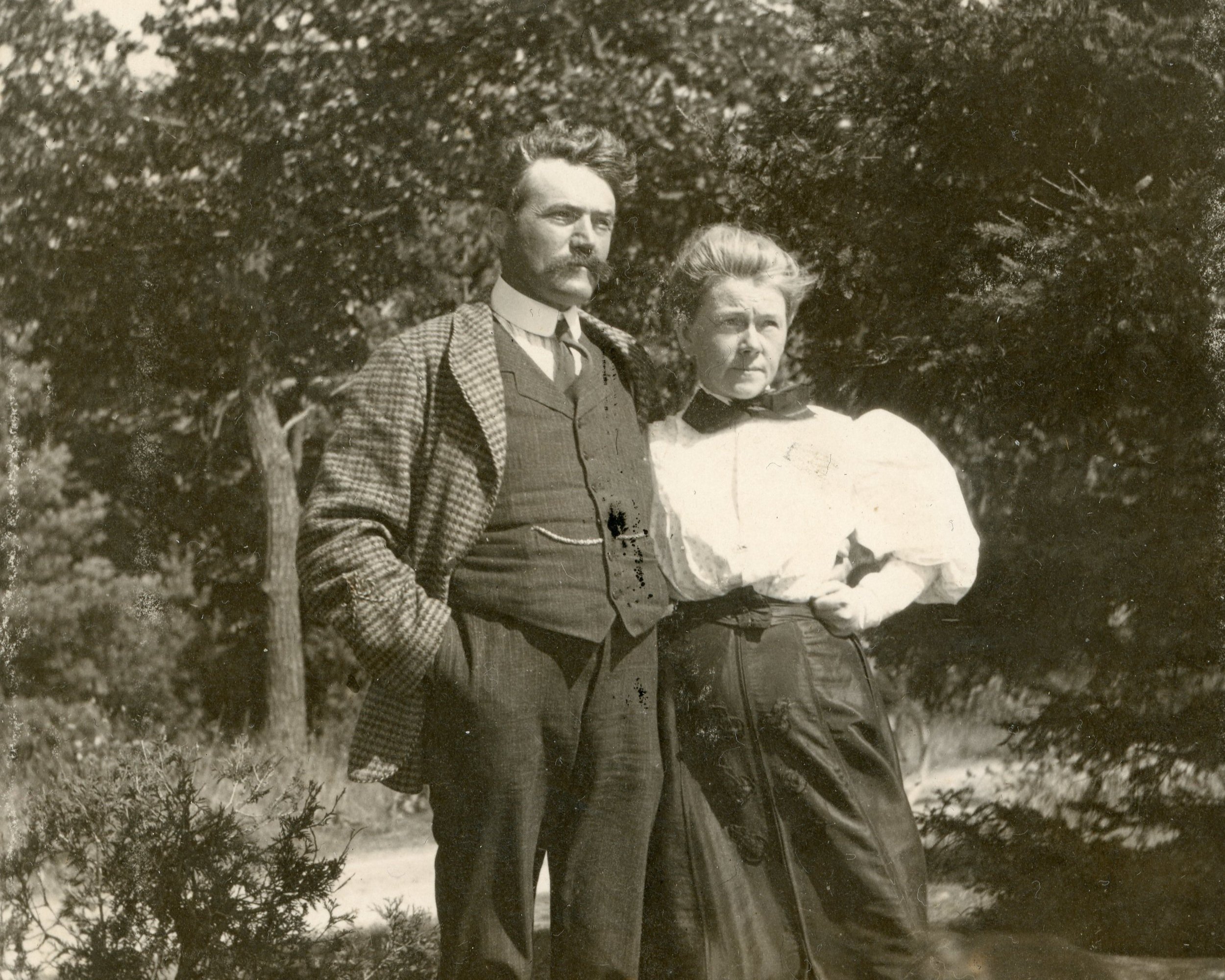
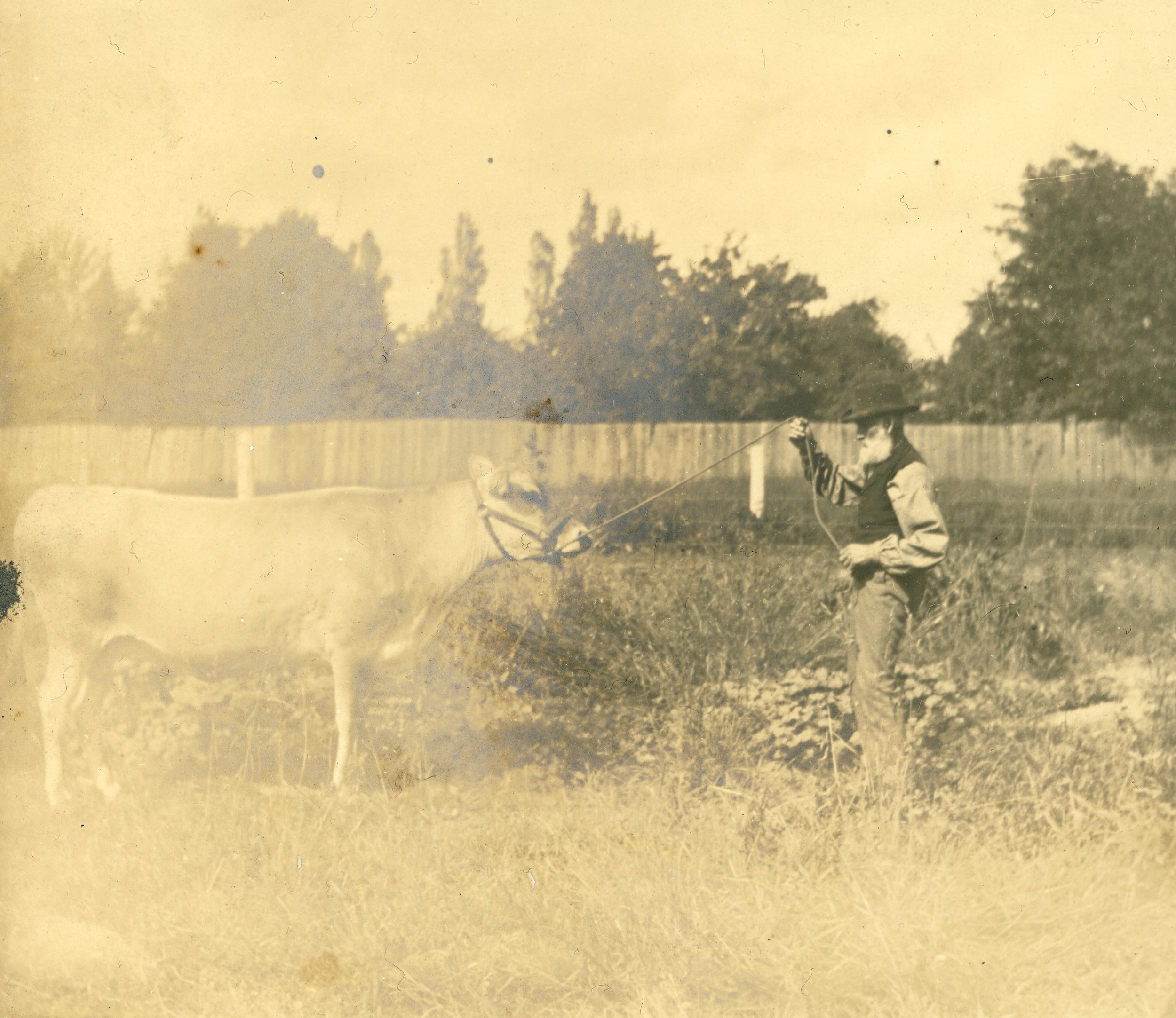
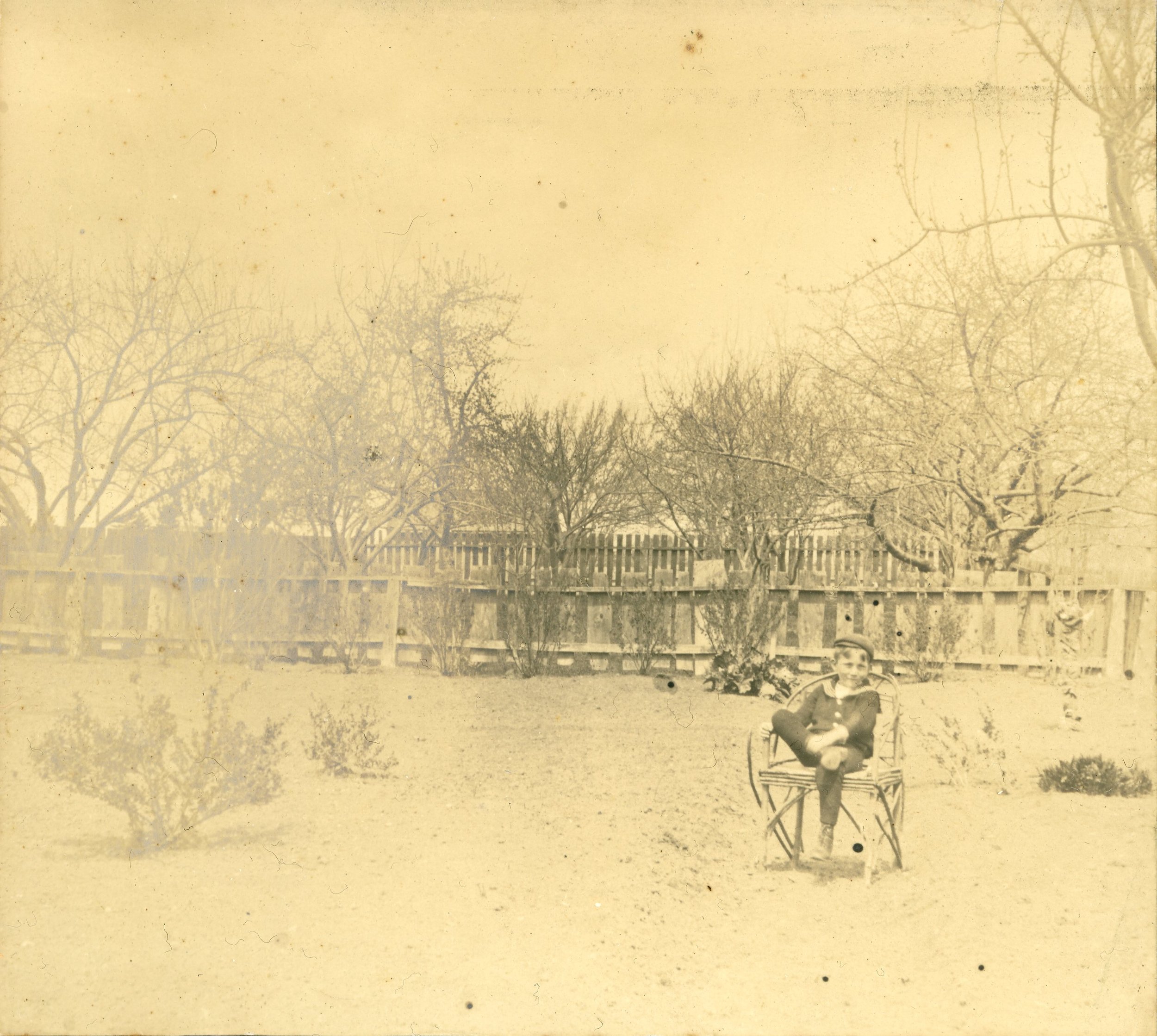
The next day, Lindsay would host the Lemen Brothers’ circus that brought elephants, camels, baby hippopotamuses and tigers to the main street of the town. Witnessing the circus he writes, “everyone who had legs, especially those who still had legs flocked together and the cheering was great” and “in the evening, on a meadow in front of the town, there was a performance that was just great.”
Circus on Kent Street, Lindsay. ca. 1900.
Being as Thomas Stewart was influential in educational politics in Victoria County and was the Chairman of the Board of Education, he gave his friend a tour of the Lindsay Collegiate Institute where he described “the rooms of which are so pretty and so practically furnished that they could serve as a model for all schools in the Old World.” Not only would Trojan get a personal tour of the high school, but Stewart would also ask his close friend, William Flavelle, to give him a tour of his egg house on King Street. He would describe this business as “in the shop the bought eggs, after each one had been held up to the light to test its integrity, packed by the thousands in large casks, and when the cask was full poured oil over it.” Further he would learn that these eggs would be stored in the egg house until the winter months to be sent over to Europe, which “ensures that the eggs come to the Old World in a somewhat seasoned state, which is supposed to make them very tasty.”
Trojan would spend from June 14 to July 5 at the home of Thomas and Lillian. They spent their time chatting, playing the piano and singing. Trojan noted that “there were all kinds of books in the house, both entertaining and instructive, and among other things I found Goethe’s Faust in English translation. Lillian who did not speak German, studied this work and had given a lecture on the Faust saga at the town’s [Fortnightly Club] the previous winter.” When his time in the house seem to be disturbing the Stewart’s, as he writes himself, he would go on walks around town though he stated he “could not go far beyond Lindsay’s boundaries, because I was soon standing in front of a fence everywhere, where every path ended.” These walks afforded Trojan the opportunity to see the wild parsnips and the great mullein that lined every path in the town. He would depart Lindsay and continue his travels in Ontario down to Niagara Falls.
Postcard, Lillian Stewart, Berlin, to Arthur Stewart, Lindsay. July 23, 1905. Stewart family fonds.
On the title page of the book, Johannes Trojan penned a note to Lillian Stewart on April 14, 1904, that can roughly be translated to “Mrs. Stewart, as a friendly reminder of the summer of 1900. J. Trojan.” It is unknown how Thomas and Lillian became friends with Johanna Trojan. In 1905, the Stewarts travelled over to Berlin and met with Johannes and his wife around July 23 where they had their picture taken and Mrs. Trojan’s nephew, a medical student, had dinner with them one night. A postcard — pictured at the beginning of this post — was also sent to Lillian in December 1912 from Johannes wishing her and the family a Merry Christmas and Happy New Year.
Written by Zac Miller


